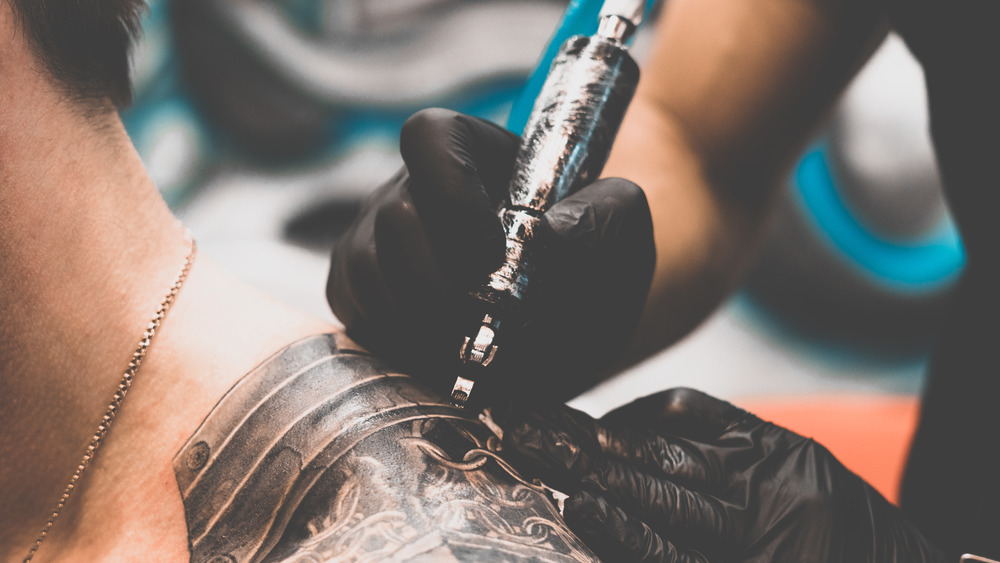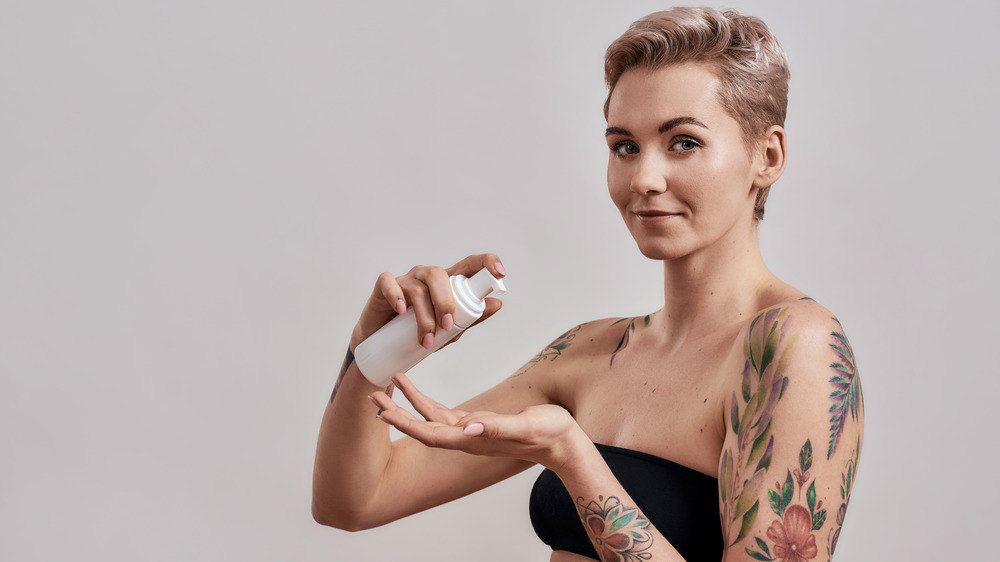What It Really Means When Your Tattoos Start To Itch
Tattoos can be a beautiful and artistic form of self-expression, but they require care and attention to keep ourselves safe and healthy. Because your skin is healing after receiving a new tattoo, it's not uncommon to experience itching, much like you would as a scab begins to mend itself (via Medical News Today). In some cases however, itching can be an indicator of something more.
Itching can be a symptom of possible infection. This can result from tattooing instruments not being properly cleaned or discarded. With infection, you will likely notice additional symptoms such as swelling, redness, or bumps. In more extreme cases, infection can also be accompanied by fever or pain.
Itching can also be a side effect of an allergic reaction to the pigment in the ink. The American Academy of Dermatology states, "While any color can cause an allergic reaction, red ink causes the most allergic reactions." This can be due to the makeup of the dye. Some metals known to induce these allergic reactions include aluminum and iron, both of which can be found in tattoo dyes.
Itching can occur for both new and old tattoos
Less commonly known is that itching can also occur with older tattoos. One potential cause is inflammatory conditions, such as sarcoidosis. Experts at Healthline describe sarcoidosis as being "triggered by your body's immune system responding to foreign substances, such as viruses, bacteria, or chemicals." While not caused by the tattoo itself, this disease has been shown to cause skin irritation around the site of a tattoo, which can sometimes occur many years later (via Healthline). Additionally, in rarer cases, MRI scans have occasionally triggered itching around old tattoo sites. Generally, the itching subsides on its own rather quickly.
Should you find that you're experiencing skin irritation beyond what can be expected from a new tattoo, such as chills, pain, or other symptoms, do consult with a medical professional for further diagnosis. For at-home relief, consider applying a cold pack to an older tattoo, as this can also help reduce swelling. Additionally, keep skin hydrated with a medically approved cream or lotion suggested by your tattoo artist, that won't cause additional discomfort or affect the piece itself.


